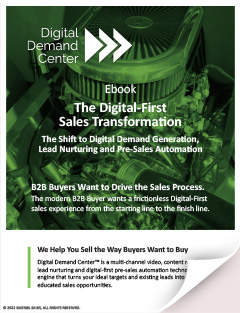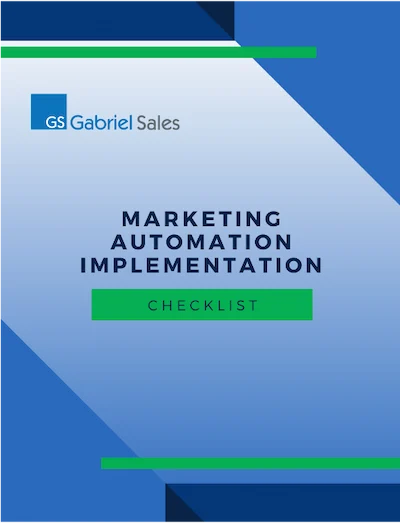 If you are trying to sell anything in 2013, it is likely you are trying to do so in the digital space. The internet and internet-based technologies have changed the B2B selling and buying process immensely, and you now need to be able to easily find and engage with your customers online.
If you are trying to sell anything in 2013, it is likely you are trying to do so in the digital space. The internet and internet-based technologies have changed the B2B selling and buying process immensely, and you now need to be able to easily find and engage with your customers online.
Evidence of this dramatic shift towards digital is everywhere. Let’s take Nike for example. In the past three years, Nike has dropped their print and TV ad spend by 40% and has instead invested $800 million in nontraditional advertising (method10x10.com). Additionally, Econsultancy’s 2013 marketing survey found that 39% of marketers plan to increase spend on digital marketing without increasing the marketing budget overall.
But the most interesting statistic regarding this shift comes from Gartner, who has predicted that by 2017, CMOs will spend more on technology than CTOs.
What this shows is that as we go forward, technology and marketing’s relationship will only become more intertwined. A marketer’s job is no longer purely about branding and positioning. A marketer must now understand how to integrate a brand story with digital marketing platforms and measure the results of his/her efforts.
To do that, marketers need technology.
With the right technologies, marketers can aggregate and analyze huge amounts of data in order to understand their customers, deliver the right messages in the right platforms at the right times, and measure their success. In other words, technology eliminates the guesswork and subjective opinions that have classically defined marketing and replaces them with statistical data and a clear ROI.
Overall, CMOs are spending more than CTOs on technology because of the value it brings to their companies and themselves.
Marketing automation, social media marketing, customer relationship management and customer analytics are all now permanent fixtures in the B2B sales landscape and are impossible without the right technologies. When CMOs know how to leverage these technologies to build effective digital marketing content and campaigns, they are able to reach their customers more quickly and effectively while simultaneously collecting data that shows clear ROI for their efforts.
In summary, CMOs now need to be as much of an expert in technology as they are in branding. CMOs need to be able to come up with a strategic brand story that demonstrates a company’s value and at the same time manage the company’s technology stack, deliver messaging across multiple platforms, analyze social media for trends and insights, assess the effectiveness of new marketing technologies, and show the ROI for all marketing efforts (Experian).
If you would like to know more about the changing B2B sales landscape or why CMOs are spending more than CTOs on technology, you can download our white paper called “New Rules for Sales & Marketing in 2013 & Beyond.” If you have any questions, please feel free to contact us.




